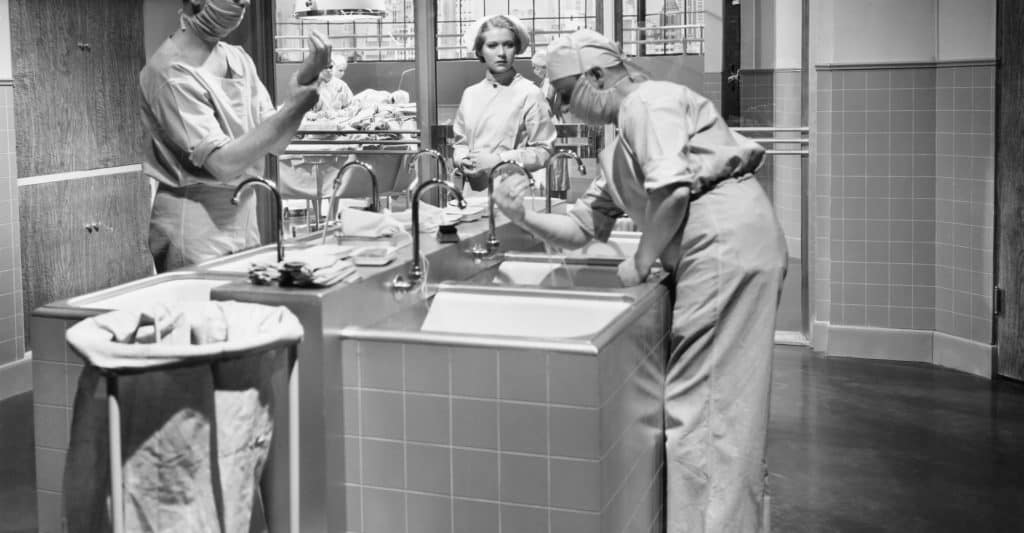Brands and marketers alike have many things to consider in today’s ever-changing healthcare landscape. Are patients happy with their relationships with their healthcare providers? How likely are they to switch doctors? What could be improved with the doctor-patient experience? How do people want to be communicated with by their providers’ offices?
To find out, Solutionreach recently conducted an in-depth study involving interviews with 2,100 consumers in the U.S. All respondents have health insurance, make health decisions for themselves or their families, and have visited a doctor in the past year.
Overall, consumers cite three key things that could improve the doctor-patient relationship: greater connectivity, better convenience via text and online tools, and more time with the doctor.
Michael Del Gigante
While these improvements would be welcomed by all respondents, the researchers found major differences in how important each is with Millennials (age 21–34), Gen Xers (35–51), and Baby Boomers (52–70).
Moreover, each age group showed distinct preferences across a host of other healthcare provider–related areas, including satisfaction with service, preferred channels for interaction, and likelihood to switch providers.
To help healthcare marketers better target their messaging, here are some of the key findings from the research for each age group:
Millennials
Among the three generations, Millennials are the least satisfied with their doctors and are most likely to switch practices. Not surprisingly, the researchers found that they are also the generation that is most likely to want to receive e-mail and text communication from offices.
- Only 19% of Millennials are satisfied with their primary care physician, just 37% are satisfied with their eye doctor, 28% with their dermatologist, and 36% with their dentist.
- Some 42% of Millennials say they are likely to switch their primary care provider in the next few years and 54% have already switched practices in the past two or three years.
- Millennials are open to communication across all channels, with more than 70% saying it is appealing to get appointment reminders, appointment alerts, and follow-up reminders via phone, e-mail, and text.
Generation X
Many Generation Xers control healthcare decisions across multiple generations, and their preferences and satisfaction levels both fall somewhere between younger and older consumers. Overall, the researchers found that they are fairly similar to Millennials, with an openness to digital communication and to switching providers.
- Some 32% of Gen Xers are satisfied with their primary care physician, 31% are satisfied with their eye doctor, 30% with their dermatologist, and 40% with their dentist.
- Gen Xers are the most likely generation to say they may switch their primary care provider in the next few years: 44% are likely to do so.
- Phone remains the preferred communication channel for Gen Xers to receive appointment reminders, appointment alerts, and follow-up reminders. However more than 60% say it is also appealing to get alerts via e-mail and text.
Baby Boomers
Baby Boomers, the biggest consumers of healthcare services, are the least likely to switch doctors. However that doesn’t necessarily mean they’re happy: less than half are satisfied with their current providers. Boomers are also the generation least interested in receiving communications from doctors’ offices digitally.
- Some 42% of Baby Boomers are satisfied with their primary care physician, 47% are satisfied with their eye doctor, 39% with their dermatologist, and 43% with their dentist.
- Only 20% of Baby Boomers say they are likely to switch their primary care provider in the next few years, 14% are likely to switch their eye doctor, 21% their dermatologist, and 23% their dentist.
- Phone is overwhelmingly the preferred communication channel for Baby Boomers to receive appointment reminders, appointment alerts, and follow-up reminders. Around half or fewer of Boomers say the idea of receiving alerts via e-mail and text is appealing.
What should healthcare providers and marketers make of all this?
The first big takeaway from the report is that there’s a lot of room for improvement.
Fewer than half of patients across all generations are satisfied with their current doctors, and the share of dissatisfied consumers is especially high with Millennials and Gen Xers.
Moreover, unhappiness is paired with an openness to switching providers—again, especially with younger patients.
This combination of dissatisfaction and willingness to change should give every healthcare provider pause; it should not be taken for granted by any means that patients will stay with your practice simply out of loyalty.
So, what can you do to improve the relationship? Beyond the eternal request—that doctors spend more time with their patients—the research shows that consumers want better doctor-office staff communication and that they want interactions/management/scheduling to be more convenient.
What’s important to understand from the report is that convenience can come in different forms for different generations. For older consumers it may mean a friendly staff member calling by phone to personally deliver reminders. For younger consumers, it may mean supplementing phone calls with e-mail and text alerts.
What emerges from the research is that there is no one-size-fits-all approach to patient communications or healthcare marketing that will satisfy every patient. Each age group, and each individual, has a unique set of preferences. Ultimately, the key to improving the doctor-patient relationship isn’t shifting to one particular communication or marketing approach, but rather embracing a wide mix so that the full spectrum of consumers is served well.
Michael Del Gigante is the founder, president and creative director of MDG Advertising
Keep up with latest coverage on digital healthcare by signing up for Internet Health Management News today.
Favorite